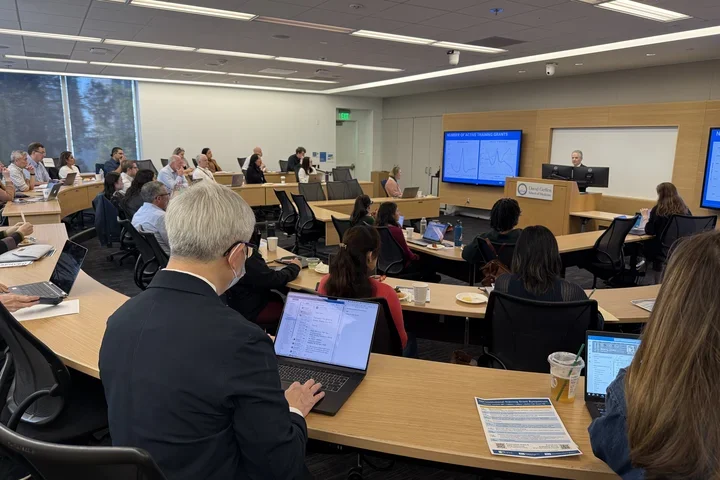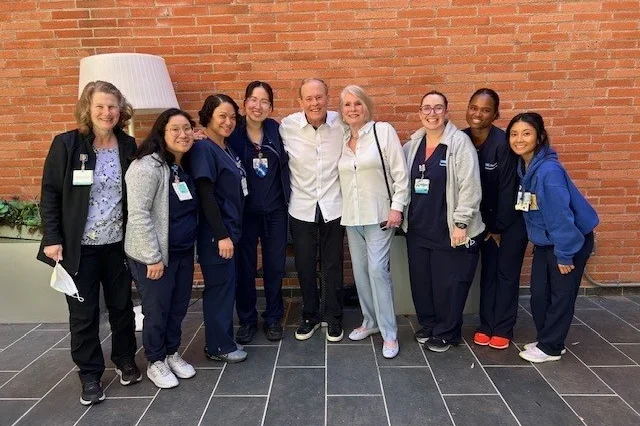Precision medicine meets neurology at the clinical neurogenomics research center

The Center’s mission is “to unite research and clinical care for the benefit of patients,” says co-director Brent Fogel.
Neurological disorders such as Alzheimer’s disease, multiple sclerosis (MS) and epilepsy can be difficult to diagnose and treat, because the same disease may cause different symptoms in individual patients.
To study the role of genes in these diseases, the Department of Neurology at the David Geffen School of Medicine established the UCLA Clinical Neurogenomics Research Center (CNRC). The program is one of the first in the world to examine brain diseases using genomics.
While genetics involves studying changes in one or several genes associated with a particular disease, “genomics” looks at all of a person’s genes at once – all 20,000 of them. When genomics techniques are applied to neurologic diseases, it’s called “neurogenomics.”
Lack of access to patient samples is a “monumental barrier” when conducting neurogenomics research, said Brent Fogel, associate professor of neurology & human genetics and co-director of the CNRC.
“The idea behind the CNRC is to give every patient the opportunity to participate in research,” he said, “and make our patient population accessible to research in our department, at our institution and beyond.”
As researchers use the samples to uncover new connections between genes, lifestyle, and disease, those findings lead to better diagnoses, treatments and recommendations.
Diversifying the genetic databases
The CNRC operates in partnership with the UCLA Institute for Precision Health, which was launched in 2016.
“Precision health” is an approach to wellness and medicine that considers individual differences in a person’s genes, history, behaviors and environment, both when treating disease and in matters of prevention and healthy lifestyle.
The Institute for Precision Health’s ATLAS Community Health Initiative aims to create California’s largest genomics resource for developing new medical treatments. The goal of the ATLAS program is to collect samples from 150,000 patients of diverse ethnic backgrounds that can be genetically analyzed in the context of clinical, environmental, and lifestyle information. All the samples are de-identified to protect patients’ privacy.
“We want to create an atlas of genetic diversity,” said Clara Lajonchere, PhD, deputy director of the Institute for Precision Health and co-director of the CNRC. “We are working across UCLA Health and across our community hospitals to recruit diverse patients.”
By studying patients of different ethnicities, genders and backgrounds, researchers can develop a more complete picture of the genetic and environmental factors that contribute to a disease. By the same token, starting with a more diverse biobank of samples will mean any resulting discoveries will be applicable to a broader population.
Dr. Clara Lajonchere is the David Geffen School of Medicine Precision Health Theme leader and a collaborating partner with the CTSI. See the press release on her CTSI-supported research.
See the full UCLA press release.
image caption:
Image source:



